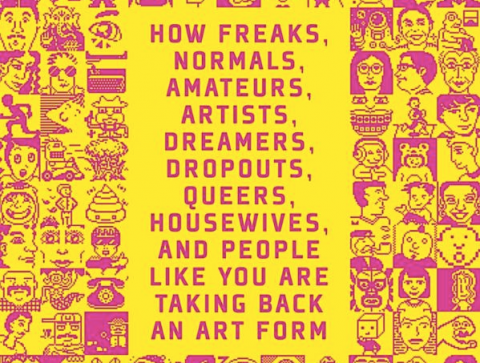
I’m almost finished reading Anna Anthropy’s Rise of the Videogame Zinesters, and I’m starting to get the itch to download Game Salad, design software aimed at non-programmers. I have no interest in becoming a professional game designer, but going through the exercise of designing a video game sounds really worthwhile.
We’ll see?
Even when Anthropy is merely walking through the basic steps to designing a game with today’s tools, you feel pushed to do...well, something. Anything. A compulsion to create. She is looking over your shoulder, and you’re compelled to give this damn thing a shot. Anthropy’s whole book feels like a pitch to the apathetic creative who’s always wanted to make a game but figured actually doing so was out of reach. It’s not. The difference between making a game and not making a game is doing it.
Never following up on this musing would neatly line up with the horror screenplay I’ve always said I’m going to write. I’d tell you the title of said screenplay, but, hell, I can’t even find the document anymore. Clearly, it’s a priority.
Hey, You Should Play This
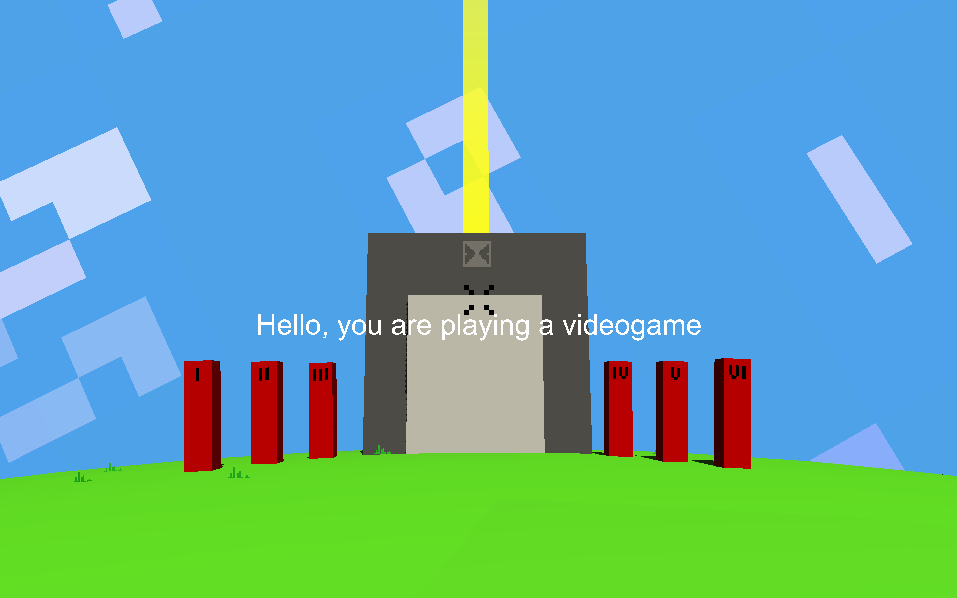
If you finished Fez, and by finished I mean go for a ride on the off-the-rails cryptography train, you probably weren’t ready for another set of logic puzzles by the end. I mean, I guess you could, but how the hell is your brain not total mush? I’m expecting a series of games directly influenced by Fez in the next few years, and Phi is one of them. Phi came from the Ludum Dare, and it takes but only a few moment of roaming around to realize just how much designer Thomas Bowker took from Phil Fish’s insanity. The world itself reminded me of Proteus, actually, especially when I found myself unable to crack the puzzle, despite seemingly having the evidence, and I kept chasing down frogs.
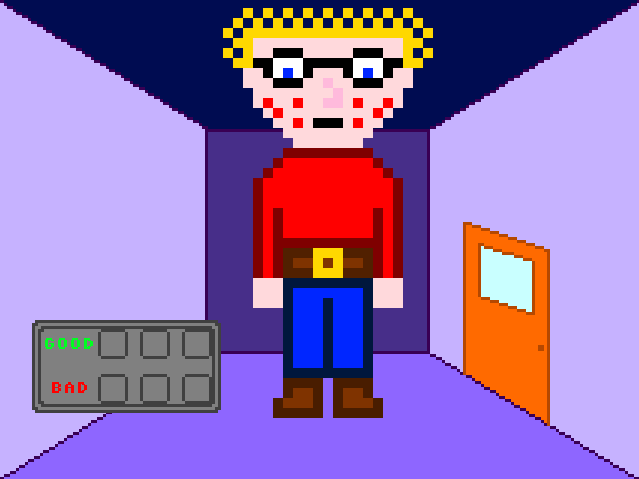
You already had me with your name, Intense Staring Simulator, and slayed me with your writing. There isn’t much to Intense Staring Simulator (if you’re stuck on the last puzzle, try looking around), but when I mull the kind of game I could possibly make with zero design skills, a game like Intense Staring Simulator comes to mind. The dream of democratizing game development is to allow people to craft interactive experiences that play to their individual strengths, rather than conforming to the traditional expectations of a game, which they (me?) may be no good at.
You Should Read These, Too
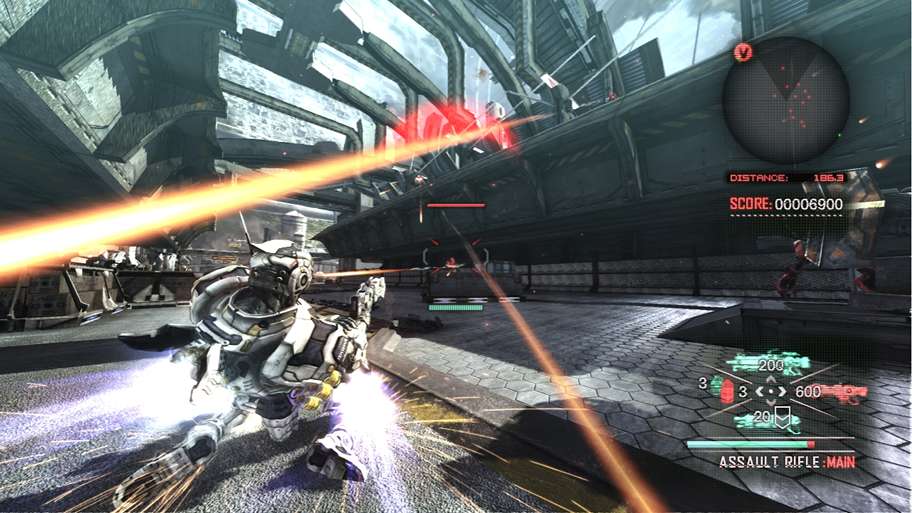
- Most Popular Video Games Are Dumb. Can We Stop Apologizing for Them Now? by Taylor Clark for Kotaku
Jonathan Blow is already a subject that’s sure to rub some people the wrong way, and when Taylor Clark profiled the designer of Braid and the upcoming The Witness for The Atlantic, Clark took a swipe at games by categorizing most them as pretty dumb. Not Vinny thinking about Prototype 2 dumb, but Jeff thinking about Prototype 2 dumb. You know, dumb. Clark’s overall message was lost in his word choice, and so Kotaku provided Clark with a platform to respond. Clark doesn’t believe we have to settle for nonsense when it comes to our video game narratives, and to accept the status quo as anything games are capable are achieving is selling the medium short. I’m inclined to agree with him, and figure more people would, too, had he not used the word dumb. That was dumb. But...
Of course, this issue might not bother you. You might point out that one shouldn't really expect much brainpower from a bullet hell shooter in which one rocket-slides around battlefields aiming glowing energy balls at flying men in super-suits, which is an argument that would hold more water if the same problem didn't afflict virtually every mainstream game. It doesn't even strike me as controversial to point out that there is way, way, way too much of this thematic juvenility in games. Vanquish, like so many others, is a product that makes us say, "It's incredibly silly, but hey—it's fun."
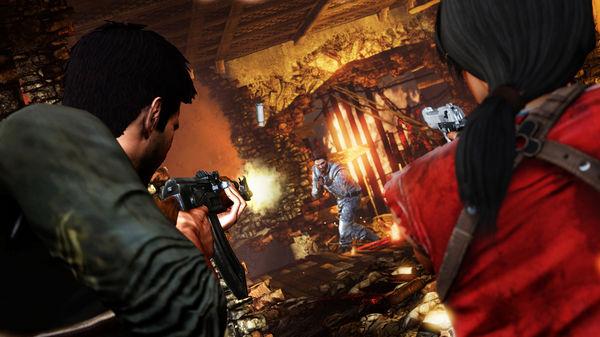
- Dumbness In Games, Or, The Animal As A System by Matthew Burns for (his blog) Magical Wasteland
...then I read Matthew Burns’ response to Clark’s piece, and wondered if I’d been wrong all along. Make sure you read the pieces back-to-back. I’m not a game designer, and I’m only at the beginning stages of becoming anything resembling a critic--I just don’t have enough experience to draw from yet. Burns has neither of those problems, and in his public reply to the question of "dumb," makes the argument that we’re all expecting something that isn’t possible. It’s not to say video games are not capable of delivering the strong storytelling found in other mediums, but that we’re asking game designers and writers to graft that into places where it’s either impossible or very, very hard.
This point about dissonance has been made before in several “mechanics versus narrative” debates, though narrative versus mechanics, like art versus technology, is ultimately a false dichotomy. (Someone always points out that lots of games exist entirely free of narrative. To me this is like pointing out that some animals don’t need backbones. It’s true, but that doesn’t help us, because we are animals that happen to need backbones. Some games need narrative in order to work.) It’s the reason why games that explicitly exclude combat— Dear Esther, Journey, and others of their kind— seem so promising right now. As an industry, we still haven’t developed anything as mechanically complex as our combat, but at least we’ve figured out that we can remove it.